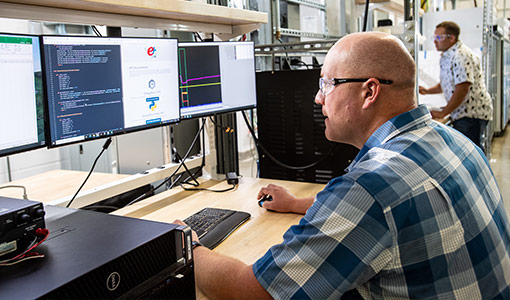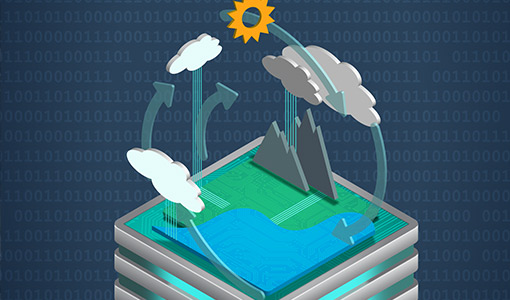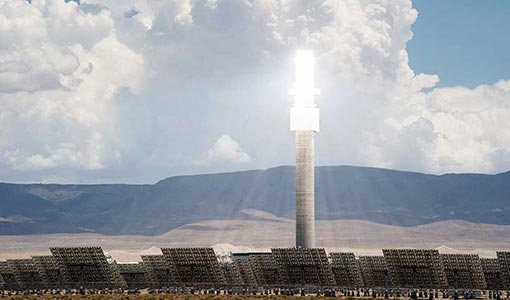Explore our collection of new stories for this topic.
Search or filter for a specific story using the options below.
January 2022
Python Opens Up New Applications for EnergyPlus Building Energy Simulation
Buildings account for more than 40% of U.S. energy use and 70% of U.S. electricity use. Reducing that consumption and "shaping" it to match renewable generation requires us to design and operate buildings to be more efficient, flexible, and responsive. To do that, we must be able to better predict and model building energy use.
December 2021
Top 20 NREL Stories of 2021
NREL researchers and staff reached countless goals and achieved numerous successes in science, partnerships, and technology commercialization in 2021. Here are just a few of the highlights.
Sharing Data in Virtual Hubs Streamlines Energy Materials Research, Spurs Collaboration
A paper co-authored by NREL researchers and others studies the success of the Energy Materials Network Data Hub—a secure, customizable scientific data sharing platform.
NREL Acquires Next-Generation High-Performance Computing System
Kestrel will take flight and bring the U.S. closer to a clean energy future.
November 2021
NREL Provides Guidelines for Creating Next-Generation Data Ecosystem
Scientists at NREL are helping pave the way for the next generation of data-driven, AI-enabled material science. In a new journal article, the authors describe a decade-long effort to build a modern data ecosystem to support close interaction between computational sciences and materials sciences.
Janna Martinek Works Behind the Scenes To Solve Some of NREL's Most Complex Problems
Since joining NREL in 2012, Janna Martinek has developed a reputation across the laboratory as a leader in numerical modeling and related engineering. She is also known as someone who can handle any problem that is thrown her way—no matter how complex.
July 2021
Multiyear NREL Study Uses Digital Twin of Dallas-Fort Worth International Airport To Inform Long-Term Investments at Major Transportation Hubs
Now in the third year of the Athena project, the team has published a series of three journal articles sharing key results on shuttle bus route optimization and expanded parking choices to improve energy use and reduce operational costs at airports.
NREL Open-Source Modeling Framework Cracks the Code of Simulating Low-Inertia Energy Systems
The United States has 37 gigawatts (GW) of utility-scale solar capacity—enough to power over 4,070,000,000 LED lights—with an impressive additional 112 GW of capacity currently under development.
April 2021
Researchers Rev Up Innovative Machine Learning Strategies to Reclaim Energy, Time, and Money Lost in Traffic Jams
Inching forward in bumper-to-bumper traffic, drivers bemoan the years of their lives sacrificed in bad commutes.
Marine Corps Air Station Miramar and NREL: Allies in Energy Efficiency, Systems Integration, and Resilience
For Miramar's latest energy management mission, on-the-ground champions and energy experts partnered to build a new efficient, resilient, and cost-effective data center.
Share
Last Updated May 5, 2025










